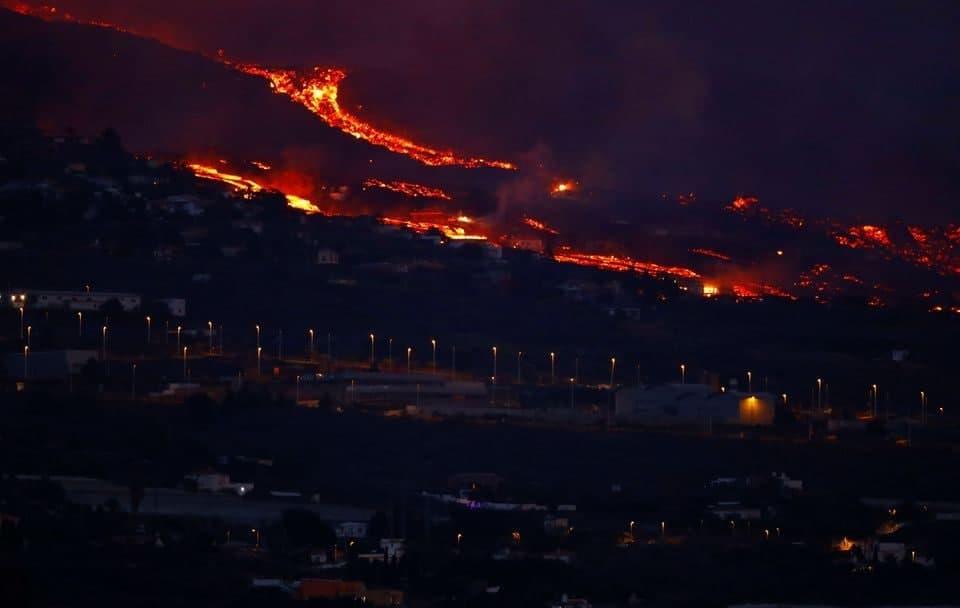LA PALMA, Sept 20 (Reuters) - Lava flowing from Spain's Canary Islands' first volcanic eruption in 50 years has forced the evacuation of 5,500 people and destroyed around 100 houses but the streams were advancing slower than originally predicted, authorities said on Monday.
The flow of molten rock will not reach the Atlantic Ocean on Monday evening as earlier estimated, an official said. Experts say that if and when it does, it could trigger more explosions and clouds of toxic gases.
"The movement of lava is much slower than it was initially ... There has not been a large advance during the day," local emergency coordinator Miguel Angel Morcuende told a press briefing on Monday evening. He said the stream had made its way about halfway to the coast.
A new stream of lava erupted from the volcano late on Monday, prompting the evacuation of residents in the town of El Paso, the regional emergency agency wrote on Twitter.
The volcano first erupted on Sunday, shooting lava hundreds of metres into the air, engulfing forests and sending molten rock towards the ocean over a sparsely populated area of La Palma, the northwesternmost island in the Canaries archipelago.
No fatalities or injuries have been reported but drone footage captured two tongues of black lava cutting a devastating swathe through the landscape as they advanced down the volcano's western flank towards the sea.
A Reuters witness saw the flow of molten rock slowly tear its way through a house in the village of Los Campitos, igniting the interior and sending flames through the windows and onto the roof.
Around 100 homes have been affected by the volcano's eruption, said regional emergency official Jorge Parra, adding that residents should not fear for their safety if they follow authorities' recommendations.
Six roads on the island were closed, officials said.
Regional leader Angel Victor Torres said the damage would be substantial. "It is still active and will continue to be active for the next few days," he added.





